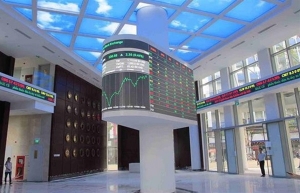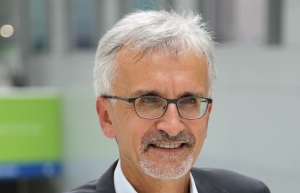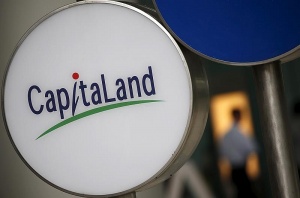INTERNATIONAL INVESTMENT
AND PORTAL
 Craig Martin - Chairman, Dynam Capital
Craig Martin - Chairman, Dynam Capital
The rapid rise of retail investors in Vietnam has transformed capital markets. Two and a half million new trading accounts were opened in the past year alone, with the overall market value surpassing $300 billion since the stock market opened two decades ago. Daily liquidity now averages close to $1 billion, and more than 80 per cent of this activity comes from domestic investors, whose investment into the stock market replaced $2 billion or so of foreign capital that was pulled out of Vietnam during the pandemic years.
Yet despite greater local interest and this increasing size and liquidity of the stock market, Vietnam is still classified as a ‘Frontier’ country by leading global equity index providers. It is the largest and arguably most developed constituent of the MSCI Frontier Markets Index (MSCI FM), with Vietnamese companies accounting for 30 per cent of the $88 billion represented in the index, but the curveball of a year that was 2022 has inevitably delayed its inclusion in the much larger – $6 trillion – MSCI Emerging Market (MSCI EM).
To be eligible for inclusion in the MSCI EM, a company must have a market capitalisation of at least $1 billion, as well as a minimum level of trading activity and liquidity. The country must also have regulations in place that allow foreign investors access to its stock market, along with a sufficiently developed infrastructure for trading and settlement. Interestingly, other Asian countries already represent one-third of the 24 constituents of the MSCI EM.
It goes without saying that when and if Vietnam was to be included, the country would attract significantly more foreign capital and potentially see a re-rating in the valuation of several of the companies listed on its stock markets. Some studies have also suggested that such an upgrade would also reduce market risk.
Today, Vietnam does not fully meet the 18 criteria for inclusion set by MSCI and falls short on the key aspects of openness and equal treatment for foreign investors. As MSCI’s evaluation is based on feedback from institutional investors, brokers, and custodians, there would need to be a visible and demonstrable improvement in areas such as the amount of ‘free float’ available to foreigners after taking into consideration foreign ownership restrictions.
Currently more than 10 per cent of Vietnam’s market is impacted by such ownership restrictions, and more than 1 per cent of the Vietnam Index suffers from lack of room for investors as a result.
Although progress has been made, there are short-term and mid-term impediments to improving the perception in investors’ minds. Exchange infrastructure needs to be enhanced with a facilitating central counterparty clearing system that reduces trade settlement periods and removes the current requirement to ‘pre-fund’ investor accounts.
Theoretically, much of this can be addressed when the stock market system is upgraded. The good news is that the Vietnam Securities Depository and Clearing Corporation was established in December, and this should allow the new KRX trading platform to go live midway this year. However, we still have mid-term issues, which are primarily about easing capital flows and opening more of the addressable market to foreign investors.
MSCI conducts its reviews of countries annually and usually announces its findings every June. The review process for Vietnam, as with all countries, would be done in stages and not overnight. First, if enough progress is identified, Vietnam would be added to the watchlist for “potential upgrade”. One year later, if all went to plan, there would be an announcement made stating that the country would be included.
It had been hoped that the first phase could be completed by June 2023, leading to inclusion by June 2025, but given the roller-coaster ride of 2022, this timeframe has probably slipped by at least one year.
The most important point is that these incremental steps needed for eventual inclusion would benefit everyone investing in Vietnam in the long term. Sadly, sentiment among the six million or so domestic investors weakened for much of 2022 as global markets declined and local anti-corruption cases rattled stocks. Vietnam’s market fell by more than 35 per cent and became one of the world’s laggards, despite being its champion only a year before. Thus, the market certainly could do with some positive news, as the eyes of investors likely stay on global events.
Nevertheless, there is no urgency for emerging market inclusion among domestic investors and for foreign investors who wish to invest in Vietnam they can already do so through specialised funds, such as London-listed Vietnam Holding managed by Dynam Capital. Eventual inclusion would be a significant step for Vietnam, putting it more firmly on investors’ radars.
The market is appealingly cheap, with stocks trading at around 10 times earnings and companies forecast to grow their earnings by an average of 10 per cent in 2023. Resilient growth combined with weak local sentiment has started to attract foreign investors’ interest once again.
Growth at a reasonable price has been one of the mantras for Vietnam Holding over the past five years when it comes to its concentrated portfolio of public companies listed on Vietnam’s stock exchanges. Whether you view Vietnam as the largest frontier market, or one of the smallest emerging markets, it is a country that could add some sensible diversification to your portfolio in 2023.
 Vietnam likely to be upgraded to an emerging market after KRX system installed
Vietnam likely to be upgraded to an emerging market after KRX system installed
Experts believe that once the KRX trading system begins official operations, many international organisations will re-evaluate the Vietnamese market to upgrade it to an emerging market.
 Global monetary tightening: issues for emerging markets
Global monetary tightening: issues for emerging markets
The US Federal Reserve has been increasing its interest rate at a difficult time for emerging markets. Patrick Lenain, senior associate at the Council on Economic Policies, offers his assessment of how the Fed’s interest rate hike affects the Vietnamese market and some solutions to respond to the fluctuations.
 CapitaLand Investment is betting on emerging markets like Vietnam and India
CapitaLand Investment is betting on emerging markets like Vietnam and India
In the midst of a volatile macroeconomic climate, Singaporean fund CapitaLand Investment is seeking opportunities in emerging economies, including Vietnam and India.



















